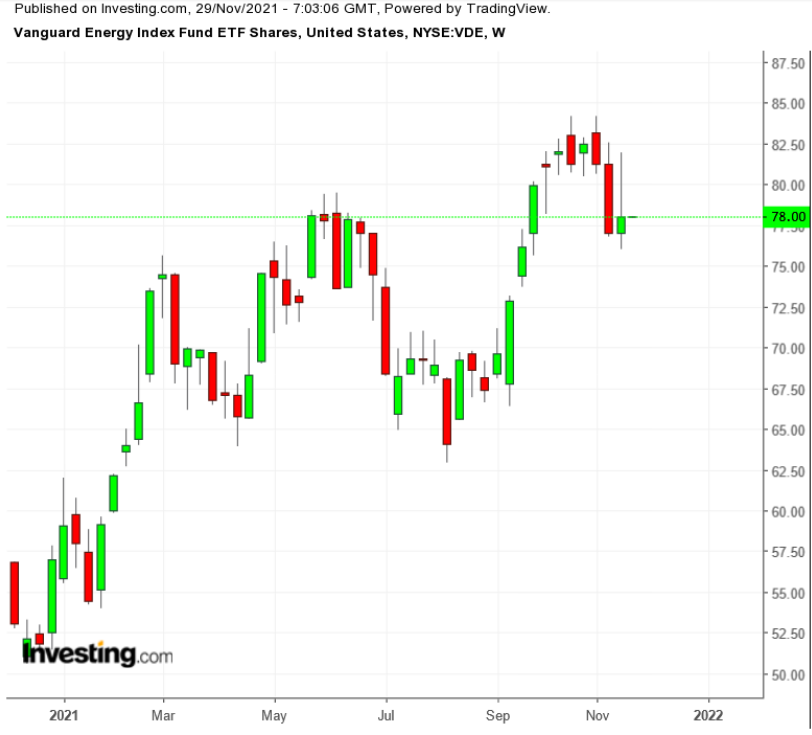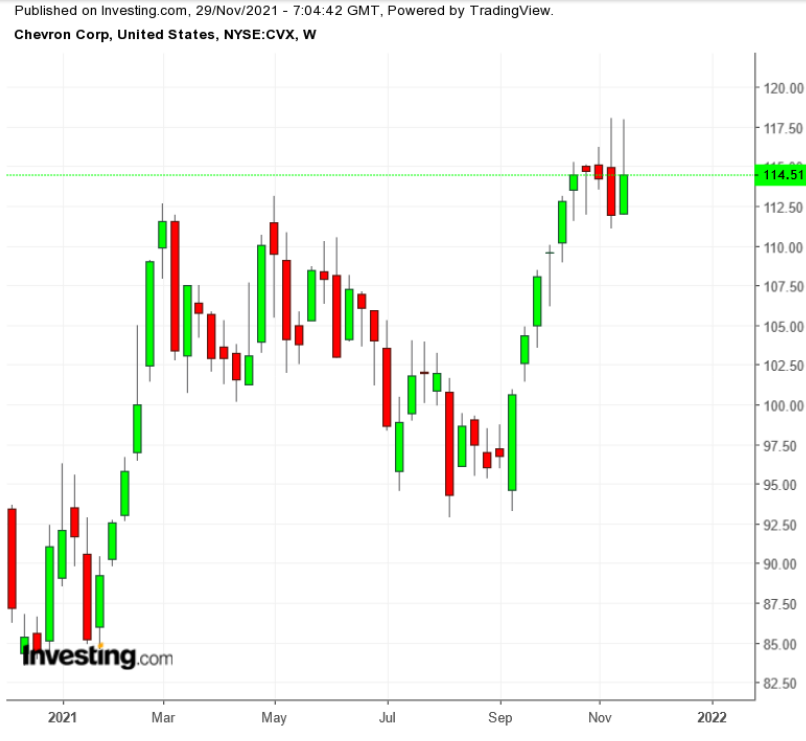Oil stocks seem to have been one of the first casualties of the new COVID variant. Investors shunned the world’s largest oil producers on Friday after news the World Health Organization had declared that highly-transmissible Omicron—first found in South Africa—was "a variant of concern."

The Vanguard Energy Index Fund ETF (NYSE:VDE)—whose top 10 holdings include Exxon (NYSE:XOM) and Chevron (NYSE:CVX)—dropped about 5% on Friday on speculation that the spread of Omicron could slow the global economic recovery, sapping demand for energy products.
Before this new development on the pandemic front, oil stocks were flying high. VDE has been up more than 50% so far this year, delivering more than double the gains of the S&P 500 as US crude prices topped $80 a barrel in October, for the first time since 2014. This strength came as global energy rebounded faster than anticipated, and global oil production, while still rising, struggled to catch up with the surge in consumption.
But the new virus strain, if proven more fatal than the previous ones, could weaken that recovery, forcing oil companies to preserve cash again. Brent, the benchmark grade for more than half the world’s oil, lost almost 12% Friday on concern that Omicron could force countries to impose fresh lockdowns and crimp air travel.
Israel banned foreign nationals from entering as more countries reported their first cases of the Omicron variant, the Wall Street Journal reported. Australia, the Netherlands and Austria joined a group of countries, including the UK, Germany, Belgium, Israel, and Italy that have detected a strain that authorities say could pose a greater risk of people falling ill with COVID-19 a second time and could be more transmissible than other variants.
Structural Underinvestment; Prices Higher For Longer
We view this latest dip—and potentially more losses in the coming days—as a buying opportunity for investors in energy trade. Virus or no virus, the demand-supply equation in energy markets is changing so that the largest producers are not keen to invest and drill more.
The new dynamics, triggered by climate change and accelerated by the pandemic, mean companies are under pressure from their shareholders to limit their spending and return more cash, causing a structural underinvestment in new production that could keep oil prices higher for longer.
Jeff Currie, head of commodities research at Goldman Sachs Group, told Bloomberg in a recent report that it makes sense for investors to remain long on oil in the current environment. “My advice to clients is that you want to stay long oil until you know where that equilibrium price is” that brings new supplies online, he said, adding:
“We know it’s above these levels because we haven’t had a big uptick in capex and investment.”
Among the banks seeing higher prices for longer, Goldman says $85 for 2023. Morgan Stanley bumped what it calls its long-term forecast up by $10 to $70, while BNP Paribas sees crude at almost $80 in 2023, the report says.

The latest earnings reports from some of the world’s largest energy producers validated this view. Chevron, which generated the largest free cash flow in its 142-year history during the third quarter, told investors that it intends to keep capital spending 20% below pre-COVID levels next year while increasing share buybacks. Same goes for Exxon, which raised its quarterly dividend last month, as it vowed to maintain its spending discipline.
Bottom Line
With this favorable demand-supply equation, it makes sense to hold at least a small allocation in energy stocks in your portfolio, especially in shares which are returning more cash in the shape of dividends. The current pullback could open such a window for investors currently on the sidelines.
